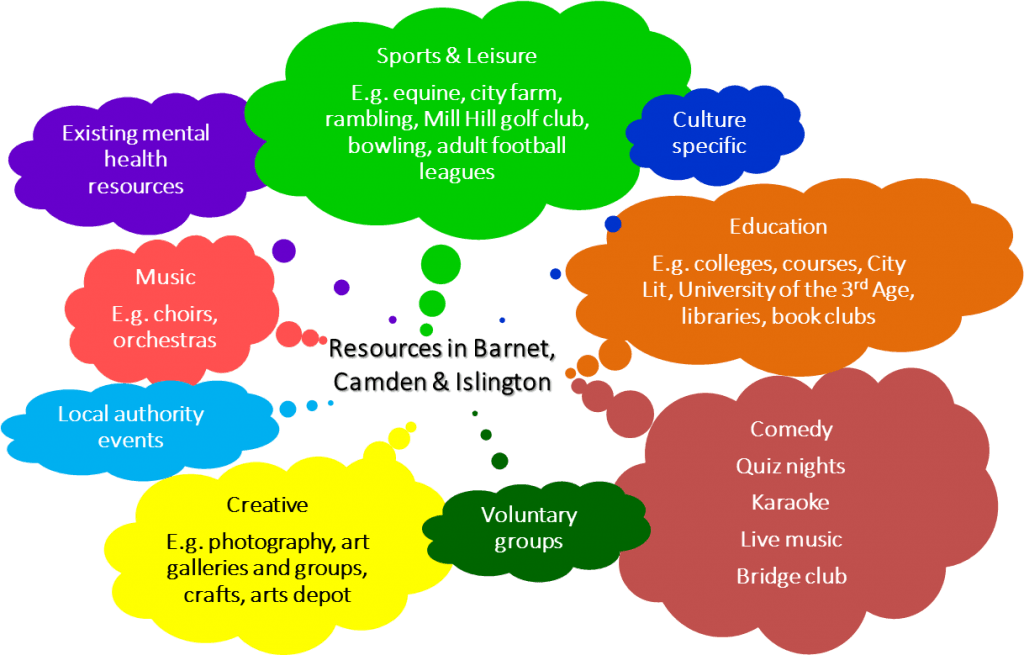Reflections on Community Navigator Training: Getting Navigation Ready
By Jessica Bone, on 10 November 2016
The training for the Community Navigator programme took place throughout September 2016. The five day itinerary was thoughtful and comprehensive, and we gained insight into the rationale behind the research. During the first day, there was time to discuss previous research findings and the evidence base which highlights the adverse health impact of loneliness and social isolation. This provided a useful theoretical overview and rationale for the study, as well as our role within it. Building on this, we all reflected upon the differences between emotional and social loneliness and considered possible barriers to people identifying as being ‘lonely’ – such as a feeling of being stigmatised. We also acknowledged various social, cultural and political factors which can contribute to exclusion, isolation and loneliness.
Our training programme incorporated a visit to Wellbeing Enterprises in Runcorn, a project which undertakes social enablement and engagement work with people referred via their GP. All three of us found this an interesting and informative day. It was particularly useful to go out and shadow some of the team members working there. We met several of the people referred, observed meetings in GP surgeries and generally gained a more in-depth understanding of their role and how the project supports people to build social connections.
On return to UCL, we considered the Community Navigator role and how we might engage people referred, including the importance of respecting their knowledge and experiences, and being mindful of people’s preferences in activities and social connections. One of the key challenges identified was how we can best keep a clear social focus without replicating clinical support already provided or becoming involved in other issues like housing. Without a clear focus, the role may be perceived as offering a counselling or befriending service or having a generic support function. We agreed that explaining the Community Navigator role clearly at the outset to people will be vitally important for managing expectations. In the time-limited role (ten sessions), planning work carefully and developing a collaborative understanding of the aims will maximise benefits and avoid potential misunderstandings. Accordingly, we discussed the goal setting tools and ways in which these could be used to maintain focus and chart progress.
As we are based across Camden, Islington and Barnet, we utilised some of the training to consider community resources available and how we can identify and explore these resources in more depth. We thought about resources that we already know about, and put together the mind map shown below. Locating appropriate groups and activities which are welcoming and inclusive will be a key factor. It was agreed that checking out these factors and developing our relationships with providers is important, meaning that referrals can be made with greater confidence. This means people will be more likely to have positive experiences.

One of the training days focused on how Community Navigators could work with people to identify and define their social networks. We role played using the mapping tools developed by the research team and working group. It was agreed that these tools help to identify important relationships, places and activities for people and will provide a visual representation of their social networks. This will enable them and us to identify how to expand and build on existing connections and revisit previously enjoyed activities and interests. We discussed how, for some people, revisiting relationships from the past may cause some distress. We will need to manage this carefully and sensitively and, in some circumstances, support from the clinical teams may be necessary. Having experts by experience involved in this aspect of training allowed us to consider more challenges and dilemmas.
Finally, throughout the training programme, we discussed solution-focused approaches and the theories underpinning these. There was discussion regarding how this approach is a ‘good fit’ and consistent with the aims of Community Navigation. This includes the emphasis upon recognising and developing existing strengths and resources, ways of emphasising positive aspects of peoples’ lives and the focus on what is ‘going well’ in spite of challenges.
We all very much enjoyed the training. There was a good balance between information provision and discussion alongside interactive exercises, role plays and group reflection. This format enabled us to have input into the development of the Community Navigator role and what it might look like in practice. It was also very helpful to have input from clinicians from both trusts, Anna (Barnet CCT) and Rob (Camden and Islington CDAT team) who gave their time generously and shared their expertise in ways which were immensely valuable to us all. Thanks also to the wonderful supportive research team at UCL and McPin for their kindness, patience and good humour, as well as provision of lunch, snacks and copious amounts of tea and coffee!
What training do you think people need in a Community Navigator role? We’d love to hear your thoughts especially if there’s something essential that you think we’ve missed! Comment below or contact Jess via jessica.bone.15@ucl.ac.uk. You can also find more information on our study website and follow us on Twitter @ucl_loneliness.
This blog was written by our Community Navigator, Jane Plimmer, with input from the other Navigators, Cecilia MacDougald and Zubair Matin.

 Close
Close


